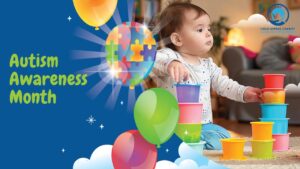Multilingualism in Childhood: benefits and positive effects
Benefits of multilingualism in childhood: Toward better mental health
Throughout childhood, children show a remarkable ability to acquire and learn several languages spoken by the people around them. For example, expatriate children have no difficulty adapting to the language of a new country. However, learning a new language is a challenge for the child as he has to communicate effectively with his new neighbors, friends, and schoolmates. Despite the initial challenge, children have a great ability to learn languages up to the age of 10, and this ability declines with age.
Multilingualism and Alzheimer’s
Research highlights the exciting relationship between multilingualism and brain health, especially in preventing language disorders such as Alzheimer’s disease. Studies show that the brains of multilingual individuals show a higher density of white matter, which contains most neurons and their connections. In addition to higher activity in several brain regions compared to their colleagues who speak one language.
The study, comparing 45 people fluent in both German and Italian and 40 individuals proficient in only one of these languages and suspected of having Alzheimer’s disease, concluded that speaking two languages has a more significant impact than age and education in safeguarding against linguistic decline. Additionally, individuals who acquire proficiency in two languages from a young age might experience a delay in the onset of Alzheimer’s disease by an average of four to five years. To explain why, the researchers say these protective effects could be a direct result of how the human brain adapts to the extra effort that occurs when dealing with two or more languages. In addition to the prevention of language degenerative diseases and faster recovery from strokes shown by the previous study. Multilinguals have a greater ability to switch from one activity to another efficiently, which makes them more able to perform the tasks required of them more quickly than their colleagues.
You can also check Early Learning in Early Childhood
The importance of the mother tongue and multilingualism in childhood
In the first five years of a child’s life, he learns his mother tongue through interaction with family and parents. If the parents speak two different languages. The child acquires the ability to acquire these two languages as a result of constant interaction with the parents. This shows that speaking two languages at home is very important for the development of his language skills.
Additional languages are key to opening up new horizons for children and understanding diverse cultures. It also emphasizes that knowing different languages contributes to distinguishing individuals in the labor market and providing diverse opportunities.
The influence of parents on children’s desire to learn languages: a Cambridge University study
A new study conducted at the British University of Cambridge indicates that children’s desire to learn foreign languages is influenced, positively or negatively, by the behaviors of their mothers and fathers more than by the behavior of their teachers or friends. The study suggests increasing encouragement for families to learn about their linguistic abilities. Noting that this may contribute to creating a positive environment for learning languages for children.
The study was conducted on more than 1,300 students in the eighth year of study. The results revealed that families’ belief in the importance of learning foreign languages plays a pivotal role in motivating children. The researchers believe that these results indicate the need to direct educational efforts towards families as well, and not only towards children.
How many languages can a child master?
There is no precise limit to the number of languages a child can learn at one time. This number varies depending on individuals and their learning circumstances. It depends on several factors such as time, focus, and the linguistic environment in which the child lives.
Ultimately, the focus should be on providing a stimulating and encouraging environment for language learning. So that the child’s desire to explore and acquire language skills is stimulated. Studies indicate that children can learn multiple languages naturally if they are provided with sufficient opportunities and stimulation. But the challenge lies in ensuring the necessary support and ongoing opportunities to develop these skills.








